I.
Black Lives Matter. Please, say it out loud if you have never before.
You and I are not special or noteworthy for being willing or able to say this. Saying it does not create action or change. It does not pledge our allegiance to a specific movement. To get to a place where America is ready to take action to protect and value black lives, we must first believe there is value. To believe a thing, we have to acknowledge it. To acknowledge it, we must say its name.
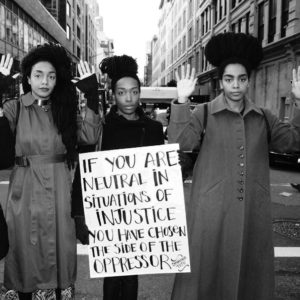
The quote is from Desmond Tutu. Photo by Daniel in Babylon, 4/27/15.
Black Lives Matter.
Let me stop some of you before you chime in with “All Lives Matter!” Indeed, all lives do matter! All of the time, all lives matter. Happily, we can agree on that. However, at a point some of those lives may be more critically endangered, more systemically oppressed, more widely undervalued than some others.
This is one of those occasions. I think it’s good and right to be able to say “Black Lives Matter” and to allow that to focus conversation and action. It doesn’t erase or neglect all lives, just as Feminism is about an end-state of equality for all, including men.
I really look forward to being able to say “All Lives Matter” in America and knowing everyone means it the same way. Until we get to that point, as a society of firefighters trying to quell the flames of injustice we need to turn the majority of our attention to the one house that has been burning brightest, hottest, and longest.
It is the house of that of the black community – perhaps too apt an analogy, considering that arson attacks against historically black churches are just one indicator that not everyone understands or believes that Black Lives Matter.
Because they do. Black Lives Matter.
II.
Last night a terrible, heart-rending thing happened and for once the entire world saw it through the same objective eyes.
A black man named Philando Castile was driving his girlfriend and their daughter in his hometown of Falcon Heights, outside Minneapolis Minnesota, when he was stopped by a police officer due to a broken taillight on his car. Per his girlfriend’s account, when the officer approached the front of the vehicle, Castile advised him that he had a permit for a concealed weapon and that he would be reaching for his wallet.
The officer shot Philando Castile in the arm and kept shooting three more times. His girlfriend, Diamond Reynolds, began broadcasting the event to the world with steely calm moments later via Facebook Live. Here is an excerpt from New York Times television critic James Poniewozik’s review of the broadcast:
“Stay with me.”
These are the first words that Diamond Reynolds speaks to her dying boyfriend, Philando Castile, in her video on Facebook Live. He’s slumped in the driver’s seat, blood soaking his white T-shirt, a police officer pointing a gun through the car window, as Ms. Reynolds’s 4-year-old daughter sits in the back seat.
…
First Ms. Reynolds calmly gives her description of what happened: They were pulled over on Wednesday for a broken taillight in Falcon Heights, Minn.; Mr. Castile told the officer that he had a licensed firearm and reached for his identification, and the officer shot him.
When the video begins, Mr. Castile is moving. A minute later, he’s still and slack. She worries that he is already gone.
Philando Castile died early this morning from his gunshot wounds. It is the day before his thirty-third birthday.
I can’t say if you should watch the video. Some feel it’s important that you personally bear witness to the deadly implications of police violence against black lives. Others would say consuming the video is yet another exploitation of black bodies when knowing the story ought to be enough.
Personally, I did not watch it, and I don’t plan to. It served a purpose – for Reynolds to document the events unfolding before her, because it was already too late to cry for help. Though her document was not a perfect beginning-to-end viewing of her boyfriend’s murder, it was a direct glimpse into the sort of incident that juries have repeatedly failed to convict on in the past several years of high profile murders of black men.
Again, from the NYT:
“I told him not to reach for it,” the officer shouts.
“You told him to get his ID, sir,” she says.
She says “sir” repeatedly — “You shot four bullets into him, sir” — as if to counter any questions about her tone, as if to say, you can comply, you can say all the things you’re supposed to say, and still this happens.
It was terrible, heart-rending, and infuriating.
III.
This is Philando Castile. Please, see him, say his name, and remember him.
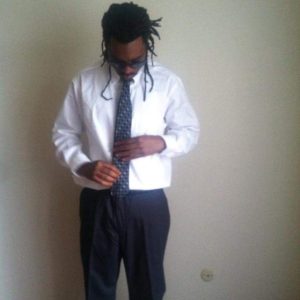
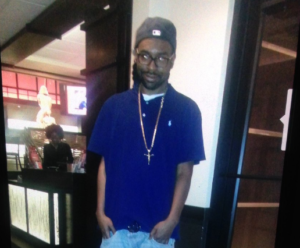
IV.
I am going to do a bad deed here and talk about myself for a moment.
It’s a bad deed because making the violence against black bodies about you if you are not black is not a good look or a necessary action. I’m talking about myself not to make this about me and not because I think my story is relevant to the murders of two black men by police caught on video in the past three days, but because I think this point can be illustrative for other white people who cannot help that they are the protagonists of their own stories.
(Yes, the murders of two black men. Had Philando Castile not been murdered last night I would still be making this post. Think about that.)
(There are more colors than white or black, but now that we’re talking about specific experiences I’ll just talk about the actions I’m taking as a token white person and not speak for anyone else. If you’re not black or white I still hope you will keep reading but I understand that your experiences and context will be even more vastly different than my own.)
A few years ago I crashed our car into our house, a fact that I still joke about constantly. As a result of that, our tail light was broken. I am an assiduously law-abiding person and I hurried to amend the tail light situation. I had the part ordered the same day. But, there was necessarily some driving around to do with the broken light – at minimum, the drive to get it fixed!
I was mortified the few times I took the car out between the light being broken and it being fixed. I was more careful than ever to drive at the speed limit and signal with plenty of notice. I’m always extra anxious about these things because I have never been pulled over by police before and I wouldn’t know what to do. I got in a very minor accident a few months ago and couldn’t even find my insurance card.
That anxiety was about being pulled over, knowing what to do or say, and getting a ticket. At no time did I fear for my life. That is part of my inherent privileges. Yet, if I was black, driving with my tail light out could be cause for my murder at the hands of police. Even the appearance of being nervous if my car was stopped could be cause for my murder at the hands of police.
That is the burden with which the black community lives every day. There is literally nothing they can do to be safe, despite some parents teaching their children how to behave around police officers and practicing how they themselves will react during a traffic stop.
(By the way, today we’ve learned those are two things that Philandro Castile’s parents and Philandro Castile did, respectively.)
(Here is a good primer on how even a disadvantaged white person still possesses privilege.)
Here is a non-exhaustive list from Mic.com of all of the actions that have lead to black people being murdered in the past few years in America. Count how many you’ve done:
- Selling CDs outside of a supermarket.
- Selling cigarettes outside of a corner store.
- Walking home with a friend.
- Missing a front license plate.
- Wearing a hoodie.
- Riding a commuter train.
- Holding a fake gun in a park in Ohio.
- Holding a fake gun in a Walmart in Ohio.
- Holding a fake gun in Virginia.
- Holding a fake gun in Washington, D.C.
- Calling for help after a car accident.
- Driving with a broken brake light.
- Attending a Bible study class.
- Failing to signal a lane change.
- Walking away from police.
- Walking toward police.
- Running to the bathroom in your apartment.
- Walking up the stairwell of your apartment building.
- Sitting in your car before your bachelor party.
- Holding your wallet.
- Making eye contact.
- Attending a birthday party.
- Laughing.
No, you might scold, you’ve never sold counterfeit goods or brandished a toy gun. Fine. Take those out of the list. How many of the other ones have you done? I have done every one of them. (Yes, even bible study, I was a good Catholic once upon a time).
Imagine for a moment, if you are a white reader of mine, what it would be like to fear for your life every time you did one of those things.
That is terrorism. It’s a constant terrorism inside our own borders and it’s being perpetuated by every police force in the country despite the majority of all police being amazing, selfless servants of the law. That is because when this terrorism occurs there is no reaction. There are no consequences. There is no change. As a result, a community of people who matter and deserve to live have to fear an entire profession of people who largely care and want to protect us all.
That’s the utter definition of terrorism, but unlike many forms of terrorism in this world this is one we can all be equipped to combat and defeat. Not just defeat the fear, but conquer the source of the terror.
V.
I don’t want people to live in fear and I do believe that Black Lives Matter. If you’ve made it this far I’m thinking you probably agree at least a little, even if you haven’t said Black Lives Matter out loud yet.
(Really, try saying it out loud, not just in your head.)
A lot of white people reach this point, including many in the last 24 hours. Here is a thing not to do when you get there: reach out immediately to your black friend or your favorite black celebrity to ask, “What could I be doing, as a white person?”
A first thing we can do as white people is appreciate this moment in time as a relatively rare occasion of being “The Other” and not benefiting from the full thrust of human history making our next actions obvious. That goes doubly so for those of us who are men. (Here is a socialogical definition of “Otherness.”)
Yesterday, Justin C. Cohen penned a wonderful, brief, blog post titled, “Advice for White Folks in the Wake of the Police Murder of a Black Person.” These are the four simple steps it elaborates upon – it’s truly worth a read:
1. If you’re White, don’t look to your friends of color for answers today.
2. What happened to Alton Sterling is, in fact, about race.
(You see, this was written yesterday, about the previous day’s murder.)3. Be aware of a few standard, and racist, media tropes about Black victims.
4. As a White person, you are in a unique position to influence the perspectives of other White people.
As you can see, I have finally progressed from Step 3 to Step 4
When you reach step Step 4, you may feel as though are you ready to be a good “ally” to black people in talking about how their lives matter. You should know that some in the BLM movement reject the “ally” term altogether.
In St. Louis, we eradicated the word “allies.” We call our white folks our comrades. Because they’ve stood in front of and next to us when we asked them to. A living demonstration of white privilege is to see a line of white people handled by the police with kid gloves, who they carefully push past to brutalize us black folks.
– Johnetta Elzie, team member of Mapping Police Violence, from Washington Post‘s “This is what white people can do to support #BlackLivesMatter”, 8/6/2015. (We’ll come back to this one.)
So, you’re not an “ally,” but you are ready to be a staunch supporter. What do you do now? Repeating Step 4 frequently is not a bad strategy. Adding your voice to the chorus is important and will surely be appreciated if you continue to listen and learn along the way.
Unlike Civil Rights, Marriage Equality, or Gun Control, there is no single solution to help make Black Lives Matter more to everyone. Yes, we can advocate for specific changes, like body cameras on police officers, but the sweep of systemic change is not something a specific piece of national legislation can achieve.
One output of the initial Black Lives Matter movement is Campaign Zero, which makes the bold proposal “We can live in a world where the police don’t kill people.” They propose this change can be affected at national, state, and local levels through a 10-step agenda that takes on police violence from every angle – from training, to oversight, to changing elements of profits and contracts:
- End Broken Windows Policing
- Community Oversight
- Limit Use of Force
- Independently Investigate & Prosecute
- Community Representation
- Body Cam / Film The Police
- Training
- End For-Profit Policing
- Demilitarization
- Fair Police Union Contracts
I do not personally endorse all of these policy changes, but you need to understand the solutions before you can pass judgement. Chances are you will support at least one of them. Unlike a national political platform, you can go ahead and advocate for that one thing without tacitly endorsing the rest.
Here is Campaign Zero’s newly-debuted (and quite awesome) interactive map showing how many states are at least considering each measure. Spoiler Alert: no single one of them has hit more than 20 states, and many are active only in one. There are 20 states with none of the measures even at the consideration level, including Pennsylvania.
That means there are a lot of places where you can make your voice heard. After you decide which changes to support, you can contact your state house representatives to discuss them. These folks are way more sensitive to constituents than your national congress people. Look up yours for fun:
One of the policies I don’t necessarily endorse is an end to Broken Windows policing, which is a policing approach that’s about sweating the small stuff. That is probably because I am Lawful Good alignment and I think rules are rules for a reason, even little ones. Here is a chapter from Malcolm Gladwell’s Tipping Point that explains Broken Windows via 1980s NYC; here is science writer Rachel Nuwer debunking Gladwell’s conclusion for Smithsonian Mag.
Whether or not it is effective, I cannot deny that Broken Windows tends to crack down on people of color who are trying to find their own version of happiness and success without the inherent privileges the system afforded to me. For example, my side-gig is an online guide to comic books. My wife’s is teaching javascript classes. Anton Sterling’s was selling bootleg CDs.
All three of us worked on our side gig this week, but only one of us died while doing it.
Sterling wasn’t the first. Here’s an article about that. It features the tweets of Anil Dash, one of my internet superheroes, who put it in perspective for me two days ago in under 280 characters:
You know how Silicon Valley advocates an Uber-esque model where everybody is an entrepreneur, disrupting markets while the law lags behind?
— Anil Dash (@anildash) July 6, 2016
Realize that #EricGarner & #AltonSterling were brutally killed for being black while selling (cigarettes & CDs) cheap consumer products.
— Anil Dash (@anildash) July 6, 2016
VI.
This is Anton Sterling. Please, see him, say his name, and remember him.
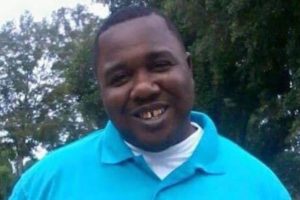
VII.
If you are less political and more social in your approach, you should look at Showing Up For Racial Justice. Here’s how they describe themselves:
There can be an impulse for White people to try to get it right- to have the right analysis, language, friends, etc. What SURJ was called upon to do at our founding in 2009 was to take action- to show up when there are racist attacks, when the police attack and murder People of Color in the street, their homes, our communities, in challenging structural racism, immigrant oppression and indigenous struggles.
I am admittedly dubious about the power of a decentralized, city-by-city “By The Whites, For Black Lives!” group to do anything worthwhile, but I also appreciate my own lack of inertia and the whole “I want to ask a black person what to do” quandary from above. Showing Up seems to focus on small, tactical things people can do to make measurable change and show tangible support, rather than existing at the strategic, national change level of Campaign Zero. They aren’t just about placing bodies at protests, but if that’s a thing you want to do they seem to support that.
To learn more about Showing Up For Racial Justice in their own words, here is a massively lengthy interview with three of its organizers that I have yet to read.
Again – saying and believing that Black Lives Matter is not about joining any one specific organization or protest. There’s no sign up sheet. Once you believe, you will discover your own form of activism.
VIII.
I want you to know that I could post a photo of a black person who lost their life to police violence every day from now until the end of the year and I would not run out. Here are just those from 2015. There are many black people to see and names to say. I’ll add one more to this post, because her story has stuck with me and really got me to wake up and tune in. (The Nation has a strong write-up)
This is Sandra Bland. Please, see her, say her name, and remember her.
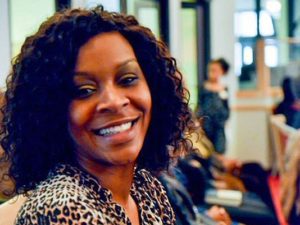
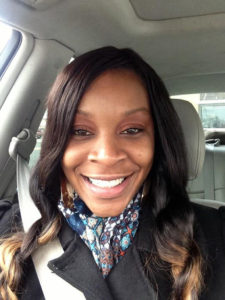
Sandra, I will not forget about you.
IX.
Black Lives Matter. Please, say it out loud even if you have before. To believe a thing, we have to acknowledge it. To acknowledge it, we must say its name.
X.
I’ll end with this quote from Alicia Garza, special projects director for the National Domestic Workers Alliance and co-creator of #BlackLivesMatter, from the same Washington Post article as the other quote above:
I want white people to do the work of pushing Democratic darlings to take more seriously the impact of structural racism…. Beyond saying #BlackLivesMatter, I want to hear more about what each of them will do to ensure a world where #BlackLivesMatter — and that means weighing in for an end to deportations and citizenship for all, fighting to end mass incarceration, ensuring that domestic workers have full rights in and outside of the workplace and on and on.
Dear white readers: let’s do that.
Fin.
.
A note:
I write this as one feminist white guy. I’m sure I got a lot wrong, but it’s my way of using my platform to start conversations that can change hearts and minds. I’m imperfect and I am still waking up.
If I got some things wrong, I apologize. I’d love to learn more, but if you’re a reader of color (hello!) I get that it’s not your job to explain anything to me. Don’t worry. I’ll figure it out for myself eventually.
If you have other resources to suggest, please do so in the comments below or send me a tweet.
Many thanks to my writerly friend Jill and my longtime blogging love Jett for helping me get some things more right than I was capable of doing on my own.
.
Epilogue.
Today my toddler and I went to Target. We had a grand time shopping, as we tend to do. I bought her a tiny Rey from Star Wars to sleep in the magnetic tile castles she’s been building all week.
While we were checking out, the man behind us in line said, “Excuse me, but her shoes are on the wrong feet.”
I laughed and shrugged. “She put them on herself; my quality control is low today.”
He laughed back. “I get it. I have a little one just like her.”
He was black. He had no idea I had been drafting this post already, nor was I going to salute him and say “Black Lives Matter!” We were being human beings in line at Target, as one does. It wasn’t an exchange of intellectual and philosophical burdens.
It was a moment of empathy and of connection, as parents and as men. Yet, my little one is not just like his, because she doesn’t carry the burden of her life not mattering as much as everyone else’s. He is not like me, because I had a police car follow me for a mile on the way to Target and I was not worried about my safety in the slightest.
I don’t want to have to think these thoughts in Target. I just want to make stupid dad jokes with the guy behind me in line.
We will get there when Black Lives Matter.
I have lived almost a quarter of a century in a country where race is not a loaded issue and guns are illegal, so what is happening in the country of my birth is beyond comprehension. Here, any photo of extended family would include Whites, Blacks, South Asians, East Asians and the inevitable Creoles resulting from five generations of no one paying any attention when deciding who to love.
Sandra, for all of the gripes you have about your country, that element of it is more magical than its beaches :)